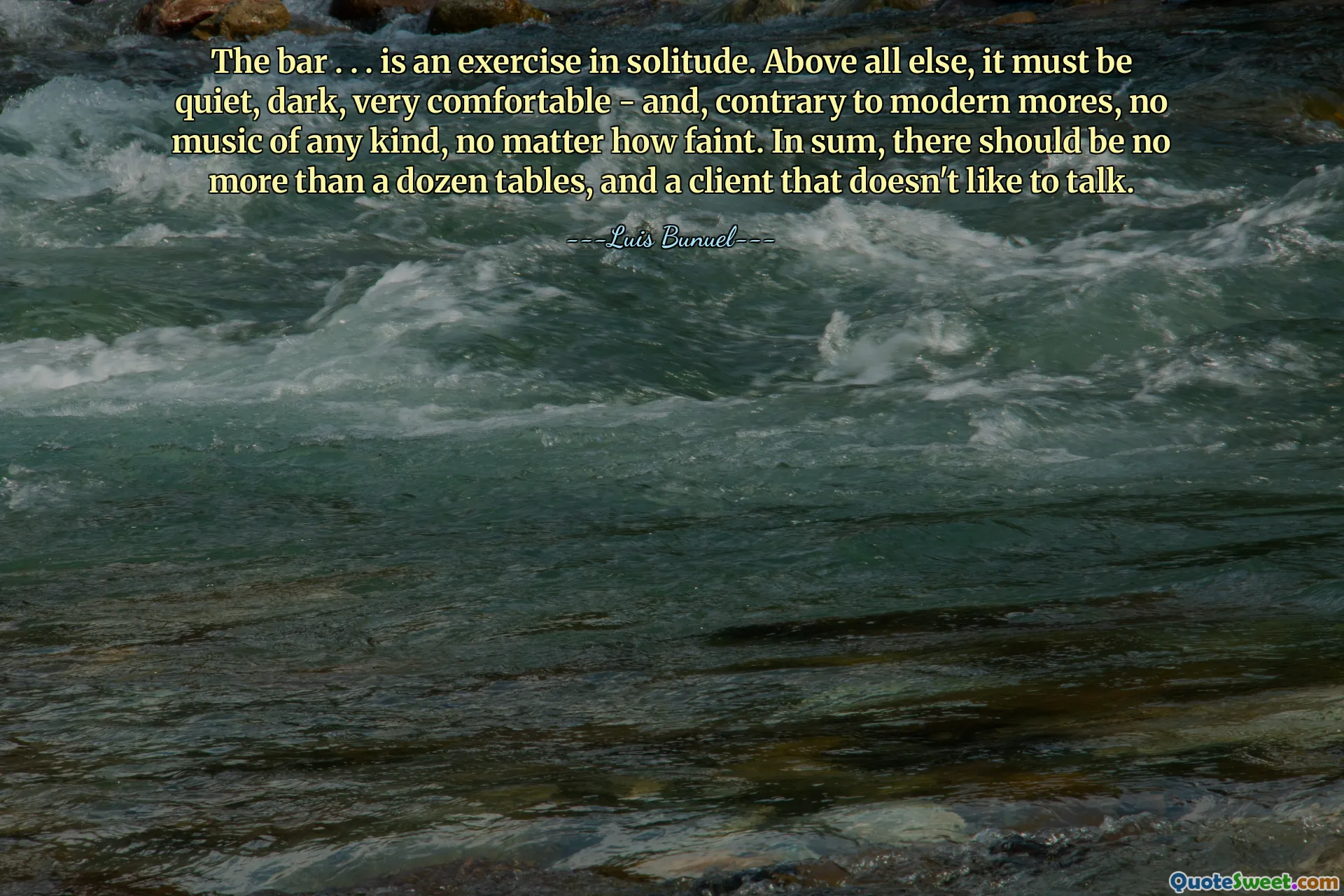
The bar . . . is an exercise in solitude. Above all else, it must be quiet, dark, very comfortable - and, contrary to modern mores, no music of any kind, no matter how faint. In sum, there should be no more than a dozen tables, and a client that doesn't like to talk.
This quote reflects a profound appreciation for the contemplative and almost sacred nature of a traditional bar setting. It underscores the importance of creating an environment conducive to solitude and introspection, rather than distraction or noise. In a world increasingly filled with constant activity, background music, and social noise, such a space becomes a haven for those seeking quiet reflection or a break from the chaos. The emphasis on darkness and comfort suggests a sanctuary where one can immerse oneself fully in thought or simply enjoy silence without interruption. The detail about limiting the number of tables implies a preference for intimacy and exclusivity, fostering a calm atmosphere that encourages patience and genuine connection—or the steeping of one's own thoughts. The absence of music, especially faint music, highlights a desire to eliminate external stimuli that could disturb the intended serenity. This approach possibly aligns with a philosophical stance that values mindfulness, deep concentration, and the need for environments that support mental clarity. It also hints at a certain nostalgia for a time when spaces like this were more commonplace—a refuge from the harried pace of modern life. Overall, the quote champions the idea that some of the most meaningful moments can be born from silence or minimal sensory input, emphasizing quality over quantity in social interaction and physical environment.
---Luis Bunuel---











